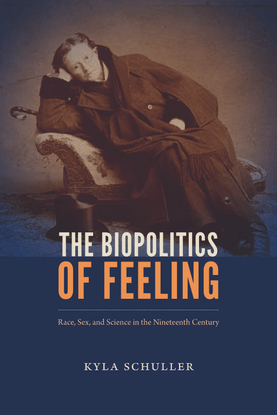Nonfiction Writing Advice
https://slatestarcodex.com/2016/02/20/writing-advice/
“For example, I stole the Last Psychiatrist’s style of section breaks – bold headers saying I., II., III., etc. Now instead of just paragraph breaks, you have two forms of break – paragraph break and section break”
“Finishing a paragraph or section gives people a micro-burst of accomplishment and reward. It helps them chunk the basic insight together and remember it for later. You want people to be going – “okay, insight, good, another insight, good, another insight, good” and then eventually you can tie all of the insights together into a high-level insight. Then you can start over, until eventually at the end you tie all of the high-level insights together. It’s nice and structured and easy to work with. If they’re just following a winding stream of thought wherever it’s going, it’ll take a lot more mental work and they’ll get bored and wander off.”
“This is really closely linked to the last tip. Your brain gets bored if it has to focus on the same thing for too long. But you can get around that by making an activity look like many different things. Sometimes this is as simple and as dumb as putting Roman numeral one, Roman numeral two, etc at natural breaks in the article, and then your brain thinks “Oh, I guess there are two different things here”. But other times you actually have to vary the reading experience.”
“Or you can be more subtle. Break your flow. Include links, so that the never-ending stream of black text on white background is broken up with some pretty blue. If you are very desperate, italicize certain words to simulate the stresses of normal speech and turn the visual experience into a visual-auditory experience. Vary the form of your sentences, as per Gary Provost:
This sentence has five words. Here are five more words. Five-word sentences are fine. But several together become monotonous. Listen to what is happening. The writing is getting boring. The sound of it drones. It’s like a stuck record. The ear demands some variety. Now listen. I vary the sentence length, and I create music. Music. The writing sings. It has a pleasant rhythm, a lilt, a harmony. I use short sentences. And I use sentences of medium length. And sometimes, when I am certain the reader is rested, I will engage him with a sentence of considerable length, a sentence that burns with energy and builds with all the impetus of a crescendo, the roll of the drums, the crash of the cymbals–sounds that say listen to this, it is important.
(Blockquotes are also a nice way to vary the reading experience)”
“But don’t just vary the appearance of your writing. Vary the tone. If you’re comfortable, shift between registers. When I was talking about SSRIs, I mentioned study after study after study – and then, around the middle, I told a kind of funny story about the time I had a job interview with the author of one of the studies. It was a complete break with the tone of the piece, which is dangerous – but my hope was that after having your mind dulled by twenty different pharmacology studies in a row, a quick first-person aside and silly story would be invigorating and give you the energy to wade through another twenty such studies.”
“I lampshade my flow of ideas with a lot of words like “Also”, “But”, “Nevertheless”, “Relatedly”, and “So” (when I’m feeling pretentious, also “Thus”). These are the words your eighth-grade English teacher told you never to start paragraphs with. Your eighth-grade English teacher was wrong. If you’re writing three paragraphs that are three different pieces of evidence for the same conclusion that you’re going to present afterwards, make damn sure your readers know this. It could be as simple as:
It’s pretty obvious that X is true, and we have lots of converging lines of evidence for this. Some of the best evidence comes from the field of augury. For example:
First, A
Second, B
Third, C
Now, some people say that not-A, but that’s totally wrong. It only looks like not-A, because P. Likewise, although Q might make it look like not-B, Q can’t be trusted for several other reasons, for example R. And not-C is too silly to even think about. So despite the objections you always hear, the augurical evidence for X is strong.
Even more evidence comes from the field of haruspicy. All four major haruspical schools hold X as a major principle. School 1 says X because of D. School 2 says X because of E. School 3 says X because of F. And school 4 says X because of G. So although augury and haruspicy disagree on a lot, on the subject of X they are in complete accord.”
“Notice the underlined words holding up the structure of the argument. Not only is the argument nice and tight, but the role of each part in the whole is telegraphed beforehand. For example, the “now” that comes just after C is saying something like “Take a step back, I’m about to tell you something that might otherwise be controversial, but listen to what I have to say”. And the “likewise” just after P means something like “We just got down talking about not-A because P, here’s another argument with about the same structure”. Before any of the facts are inserted, you already know where they fit into the structure. And you’re able to abstract from the micro-level and get the bigger picture of some fact which is supported by both augury and haruspicy, which was the main point of the argument.”
“I overuse the world “actually” really badly. I’m trying to cut down on it, but I don’t want to stop completely. “Actually” is a great structural word. It distinguishes “Here’s how things look, here’s what’s actually true”. That sentence makes sense even without the “actually”, but I feel like the “actually” holds my readers’ hands through the process and makes the dichotomy better-defined.”
“Defend your flow of ideas at all costs. This might sound paradoxical after section 2, which was about how breaking flows is great. It is kind of paradoxical, and it is sort of hard to explain, but it’s the difference between “exciting” and “horrible”. Eating a foreign cuisine can be exciting because it’s so different from your usual fare; eating hot lava is even more different than your usual fare, but no longer fun. Play around with flow and variety, but never break the flow in a jarring way. And if you have to break a flow, make it the flow of your sentence, or the flow of your paragraph, but not the flow of ideas.”
“But sometimes you’ve just got to leave out an observation which would be interesting and helpful but not at that particular part of your argument. I think the phrase is “kill your darlings”.”
“If two sentences in a row start with the same word, it sounds unwieldy. If three or four do, it sounds bizarre. If it’s a whole paragraph’s worth, people start questioning their own sanity and trying to claw their eyes out.
A counterexample: what about the paragraph just above, starting with “If two sentences…”? I started with “if” three times in a row, and it didn’t sound bad at all! What’s up?
Deliberate use of parallelism is okay and even commendable. Usually this involves using the same structure to call attention to certain differences. You can tell if something is good parallelism by saying it aloud. When I say the paragraph above aloud, I’m using special intonation, especially in the places where the sentences differ (ie “two”, “three or four”, “whole paragraph’s worth”). Here your reader knows what you’re trying to do and it’s interesting. In the medical history example, there’s no deliberate attempt at parallelism in order to compare and contrast. You’re just doing the same thing again and again.”
“This is hard and really deserves a book-length treatment. Without the book, all I can say is to realize that any repetition of words and structures will stand out to your reader, and make sure that their standing-out emphasizes your point instead of just being confusing.”
“Here’s a paragraph from my “about” page:
Topics here tend to center vaguely around this meta-philosophical idea of how people evaluate arguments for their beliefs, and especially whether this process is spectacularly broken in a way that may or may not doom us all.
There are a couple of things here that might qualify as microhumor. Take “especially whether this process is spectacularly broken in a way that may or may not doom us all”. It’s not really a joke. If I were a comedian and recited that sentence, you wouldn’t start laughing. But it’s kind of funny to be starting with what sounds like a pretty dry academic idea (“how people evaluate arguments for their beliefs” and whether the process is broken), and then confound expectations with an exaggerated (well, maybe) warning about it dooming us all. The phrase “may or may not doom us all” does the same thing on a smaller scale: “may or may not” is a pretty reserved, careful sounding phrase, whereas “doom us all” is obviously the opposite of reserved (I also like the similar construction “it might have sort of kind of been the worst idea ever”).”
“You can actually go a long way toward microhumor just with hedge words (“vaguely”, “sort of”), exaggerations (“the worst thing ever”, “doom us all”), and sometimes the combination of the two.”
“I think this microhumor stuff is really important, maybe the number one thing that separates really enjoyable writers from people who are technically proficient but still a chore to read. Think about it with a really simplistic behaviorist model where you keep doing things that give you little bursts of reward, and stop doing things that don’t. There are only a couple of sources of reward in reading. One of them is getting important insights. Another is hearing things that support your ingroups or bash your outgroups. And a third – maybe the biggest – is humor. Who ever had trouble slogging through a really hilarious book of jokes?”
“Humor is also disarming. It’s hard to hate somebody who’s making you laugh. I don’t mean somebody who’s making bigoted jokes that offend you, or writing political cartoons about how awful your ingroup is. Those people are easy to hate. I mean somebody who’s making you laugh, right now. If you can make people laugh while challenging their cherished beliefs, you’ve got a tiny bit more good will than usual.”
“Consider the following proposition:
In a study measuring whether implicit attitudes determine an outcome, you need to make sure the implicit attitudes aren’t serving as accurate proxies for underlying fundamentals.
This is the thesis of one of my more popular posts, Perceptions Of Required Ability Act As A Proxy For Actual Required Ability, but I don’t present it like that. Instead, I start by saying:
Imagine a study with the following methodology. You survey a bunch of people to get their perceptions of who is a smoker (“97% of his close friends agree Bob smokes”). Then you correlate those numbers with who gets lung cancer. Your statistics program lights up like a Christmas tree with a bunch of super-strong correlations. You conclude “Perception of being a smoker causes lung cancer”, and make up a theory about how negative stereotypes of smokers cause stress which depresses the immune system. The media reports that as “Smoking Doesn’t Cause Cancer, Stereotypes Do”.
Whether or not you understood or agreed with the abstract version thesis, you (hopefully) find the problems with the nicotine example intuitively obvious. Now if I give you the principle “in a study measuring whether implicit attitudes determine an outcome, you need to make sure the implicit attitudes aren’t serving as accurate proxies for underlying fundamentals”, that principle makes sense and you will tend to agree with it. Now we can move on to harder problems, like the actual study in the post, where it’s not as obvious and where a lot of people thought they’d proven that the implicit attitude determined the outcome.”
“If you’re going to be making a complicated point, start with a concrete example. If you’re going to be making a very complicated point, start with a lot of concrete examples. When I wrote Meditations on Moloch, probably the most complicated point I’ve ever tried to express on this blog, I began with fourteen different examples before I even started trying to express the underlying principle. I hoped that readers would be able to triangulate my point by finding what all fourteen examples had in common, and most of them did.”
“This is related to an idea I keep stressing here, which is that people rarely have consistent meta-level principles. Instead, they’ll endorse the meta-level principle that supports their object-level beliefs at any given moment. The example I keep giving is how when the federal government was anti-gay, conservatives talked about the pressing need for federal intervention and liberals insisted on states’ rights; when the federal government became pro-gay, liberals talked about the pressing need for federal intervention and conservatives insisted on states’ rights.
So if you want to convince someone of a meta-level principle, you need to build it up from examples that support it. And if you want the principle to be well-founded and stable under reflective equilibrium, you also need to present the examples that don’t support it and explain why you didn’t make your principle out of those instead.
And if you want to convince somebody that their meta-level principle is wrong, the quickest and most effective way to do it is to show that it proves too much, then provide them with a better principle that preserves the things they want but doesn’t prove things they don’t want.”
“And a free tip for this: use words like “me” and “you” instead of “a person” or “someone”.”
“Compare:
“If someone does the calculations with this methodology, the result will probably be nonsense.”
Versus:
“If you do the calculations with that methodology, you’ll probably end up with nonsense.””
“Your role model in this (and in nothing else) should be Donald Trump. Think about it. He supports Planned Parenthood, doesn’t want to cut entitlement programs, condemns Dubya and the Iraq war, supports affirmative action, supports medical marijuana, etc. If somebody were to tell you last year that a man with those policy positions would not only be leading the Republican primary, but leading even among the most conservative voters, you’d think they were crazy. The rest of the country has been trying to convince conservative Republicans to be more comfortable with those positions for decades, and we’ve failed miserably. Now Trump just waltzes in and everyone is like “Yeah, okay, sure”?
The secret of Trump’s success is that most conservative Republicans don’t really care about medical marijuana (or whatever) for its own sake. They care because opposing medical marijuana symbolizes membership in their tribe, they feel like their tribe is persecuted, they have a fierce loyalty to their tribe, and darned if they’re going to support somebody who doesn’t use the right shibboleths.”
“Trump throws them a bone. He says things like “illegal immigrants are rapists” that no moderate or liberal would ever say, things that would horrify them. He uses all the affectations of being working class. He may not quite prove he’s “one of us”, but he very effectively proves he’s not Just A Typical Outgroup Member. When Trump says “Legalize medical marijuana”, they don’t hear “I’m yet another RINO liberal pansy who hates Christian values and wants everybody to become reefer-smoking hippies”. So they only hear something boring about the regulations around pain relief medication – and who cares about those?”
“Trump’s Law is that if you want to convince people notorious for being unconvinceable, half the battle is using the right tribal signals to sound like you’re one of them.”
“For example, when I’m trying to convince conservatives, I veer my signaling way to the right. I started my defense of trigger warnings with “I complain a lot about the social justice movement”. Then I cited Jezebel and various Ethnic Studies professors being against trigger warnings. Then I tried to argue that trigger warnings actually go together well with strong versions of freedom of speech. At this point I haven’t even started arguing in favor of trigger warnings, I’ve just set up an unexpected terrain in which trigger warnings can be seen as a conservative thing supported by people who like free speech and don’t like social justice, and opposition to trigger warnings can be seen as the sort of very liberal thing that people like Jezebel and Ethnic Studies professors support. The important thing isn’t that I convince anyone that trigger warnings are really on the right – that’s a tall order – but that the rightists reading my argument feel like I’m working with them rather than against them. I’m not just another leftist saying “Support trigger warnings because it’s the leftist thing and you should be leftist and everyone on the right is terrible!”
My reward was seeing a bunch of hard-core anti-social-justice types trip over themselves in horror at actually being kind of convinced, which was pretty funny.”
“On the other hand, when I’m trying to convince feminists of something, I start with a trigger warning – partly because I genuinely believe it’s a good idea and those posts can be triggering, but also partly because starting with a trigger warning is a tribal signal that people on the right rarely use. It means that either I’m on their side, or I’m being unusually respectful to it. In this it’s a lot like Trump saying illegal immigrants are rapists – something the outgroup would never, ever do.
(And that’s not just my theory – I’ve gotten lots of angry comments about the trigger warnings from people further right than me, saying that using them makes me an idiot or a pushover or a cuck or something. I am always happy to get these comments, because it means the signaling value of using trigger warnings remains intact.)”
“Crossing tribal signaling boundaries is by far the most important persuasive technique I know, besides which none of the others even deserve to be called persuasive techniques at all. But to make it work, you have to actually understand the signals, and you have to have at least an ounce of honest sympathy for the other side. You can’t just be like “HELLO THERE, FELLOW LIBERALS! LET’S CREATE INTRUSIVE BIG GOVERNMENT AGENCIES TOGETHER! BUT BEFORE WE DO, I HAVE SOMETHING I WANT TO TELL YOU ABOUT THE SECOND AMENDMENT…”
Which I guess means that being able to consider both sides of an issue sort of gives you superpowers. That’s pretty encouraging.”
“Here’s something I’ve noticed. Something like:
Alice: We need to invade Syria. I know that there’s always the risk of creating a Iraq-style power vacuum in these situations, but the threat from ISIS is too great.
Sounds a whole lot better than something like:
Alice: We need to invade Syria.
Bob: But isn’t there a risk that will create a Iraq-style power vacuum?
Alice: The threat from ISIS is too great.
The second one sounds too much like Alice hadn’t really thought about the power vacuum thing, Bob called her on it, and she kind of blew him off with a tangentially related point. The first one sounds more like Alice is a careful thinker who has weighed all the risks and benefits and finally decided in favor of invasion. This is true even though Alice’s reasoning is the same in both situations.
Or what about this:
Alice: We need to invade Syria. I know that there’s always the risk of creating a Iraq-style power vacuum in these situations, but the threat from ISIS is too great.
Bob: I know the threat from ISIS is serious, but I’m still really worried about that power vacuum thing.”
“Bob sounds kind of weak here. Come on, Bob. Alice already raised the power vacuum issue! We’re done with that!
The moral of the story is that you sound a lot more credible, and your opponents a lot less persuasive, if you’re the one who brings the possible counterarguments up yourself. This is true regardless of how effective your countercounterarguments are.
There’s also a visibility advantage. Suppose Alice puts her argument on her blog. Bob quotes her and puts his counterargument on his blog. Maybe the readers of Bob’s blog won’t read Alice’s blog where they can see her countercounterargument. Maybe they don’t even read the comments of Bob’s blog. If Alice addressed the obvious counterarguments in her first post, Bob has been preempted from blogging about them separately, or at least has lost his low-hanging fruit and has to stretch further before he finds something he can talk about. And if he does quote Alice, all the countercounterarguments against his point will be right there for his readers.”
“This isn’t just good rhetorical practice, it’s good epistemic practice. A lot of Internet arguments are the same ten or twenty issues re-examined time after time after time after time. If you’re arguing in favor of gun control, you have no excuse not to realize somebody will bring up “But don’t guns save lives by helping people with self-defense?”. And in fact, if you’re arguing in favor of gun control, you had better have thought long and hard yourself about whether or not guns save lives through self-defense. If you’ve never considered that, you have no business having an opinion. But if you have considered and rejected that, then you might as well run your audience through your thought process now (and sound more convincing) now rather than wait until some pro-gun person brings it up (and be caught flat-footed like Alice in the second example).”
“The idea of concept-handles is itself a concept-handle; it means a catchy phrase that sums up a complex topic.
Eliezer Yudkowsky is really good at this. “belief in belief“, “semantic stopsigns“, “applause lights“, “Pascal’s mugging“, “adaptation-executors vs. fitness-maximizers“, “reversed stupidity vs. intelligence“, “joy in the merely real” – all of these are interesting ideas, but more important they’re interesting ideas with short catchy names that everybody knows, so we can talk about them easily.
I have very consciously tried to emulate that when talking about ideas like trivial inconveniences, meta-contrarianism, toxoplasma, and Moloch.
I would go even further and say that this is one of the most important things a blog like this can do. I’m not too likely to discover some entirely new social phenomenon that nobody’s ever thought about before. But there are a lot of things people have vague nebulous ideas about that they can’t quite put into words. Changing those into crystal-clear ideas they can manipulate and discuss with others is a big deal.”
“If you figure out something interesting and very briefly cram it into somebody else’s head, don’t waste that! Give it a nice concept-handle so that they’ll remember it and be able to use it to solve other problems!”
“There’s a pattern across almost all skills, where people start off doing things half-baked but sometimes with a bit of native talent. The experts teach them The Right Way To Do Things, and they switch to doing it in a stilted formulaic way that makes everybody else cringe. Eventually they become better and better. Finally, they do things that completely contradict the rules they were taught, and it works great. I think it was in the context of poetry that somebody said “Learn the rules first, then you can break them as much as you want.””
“Untrained natural writing is often bad, but at least honestly bad. Untrained writing that tries to force itself to do something because somebody told them it was a good idea is much worse. Think of the old adage “If you’re giving a speech, start out with a joke.” It’s great advice when done right. Now imagine all the ways it could go wrong – terrible jokes, inappropriate jokes, forced jokes, speeches that absolutely shouldn’t start off with jokes, et cetera. A speech that doesn’t start off with a joke is often good; a speech that shouldn’t start out with a joke but has been forced into doing so never is. Eventually you end up shouting “Just use your instincts!” at people who do not actually have instincts.”
“Use the advice in this post wrong, and you end up transforming the famous quote from the Declaration of Independence into something like:
Although we agree King George has many good qualities, we nevertheless hold these truths to be more or less self-evident. Truth number one, that all men are created equal. For example, they should all be equally allowed to speak freely about important issues like taxes. It’s possible that there might be some times they shouldn’t be equal, like children having fewer rights than adults, but this are just minor exceptions. [insert picture of Liberty Bell here] Truth number two, that they are endowed by their Creator with certain inalienable rights…
Almost the only good advice in any discipline is “develop instincts, then use them”. While you’re waiting for the instincts to develop, or in order to push them along, it’s sometimes helpful to hear some other people’s advice. But do. not. force. it.”
“George Orwell ended his own list of writing advice with “Break any of these rules rather than say something outright barbarous”. As usual, George Orwell is right.
I also like Piet Hein’s commentary:
There is
one art,
no more,
no less:
to do
all things
with art-
lessness.”
“For example, suppose I’m trying to explain some social phenomenon and I mention that rich people get better grades in school than poor people. A hostile opponent could accuse me of making a stupid stereotype and saying that all rich people are better than all poor people; then he could condescendingly “correct” me by saying that actually the within-class differences are larger than the between-class ones. Or might say that I need to realize school grades aren’t the only thing and there are much more important determinants of people’s worth as a human being. Or he might accuse me of being a Social Darwinist, and “correct” me by saying that maybe this is because of the stresses of poverty.
Now, in fact I neither said nor meant any of those things. But if somebody accuses me of them, and I have to plead that I really didn’t mean it that way, honest – then they can double down and say that my protests of innocence are the surest sign of my guilt. Whether they succeed or not, I’m on the defensive. We’ve shifted from debating whatever point I wanted to make in the first place, to debating whether Scott is a monocle-wearing Social Darwinist who believes all poor people deserve to starve on the street.”
“The solution is really simple: anticipate and defuse counterarguments. If I wanted to make the class/grades point, it would go something like this:
According to [study], students from families earning >$100,000 score have an average high school GPA X points higher than students from families earning
A related note: when talking about controversial things to a potentially hostile audience, look through every single sentence of your work and imagine how it would sound if it were quoted out of context and used as a summary of who you are as a human being. If you don’t, eventually someone will try this and you’ll be unprepared.”








